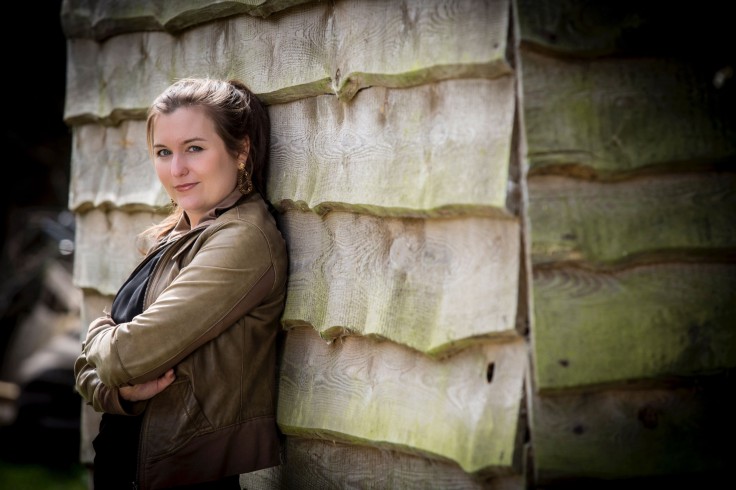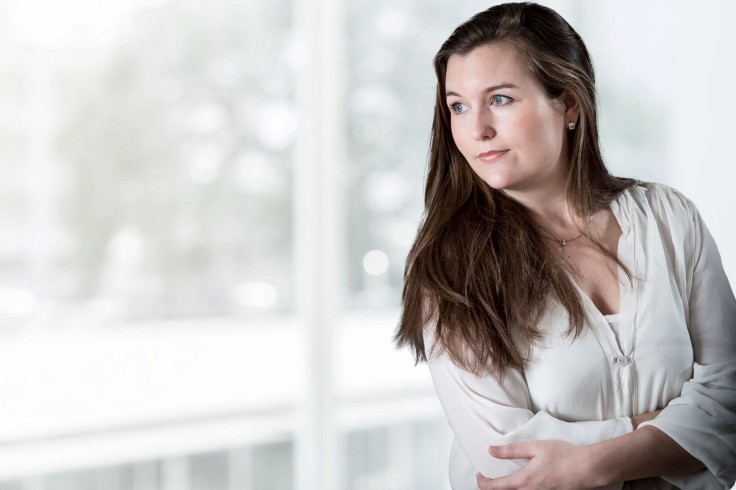
We're excited to be speaking today with acclaimed pianist Sharon Niessen. She is a gifted pianist who has performed on several concert stages across the globe, including Carnegie Hall and Concertgebouw Amsterdam. We spoke with Sharon Niessen about her journey as a musician and collaborations with other musicians.
First of all, major congratulations on your upcoming album Live Recitals! Can you tell us a bit more about it?
It's a compilation of performances I'm most proud of. The album contains works that I love playing most: Schumann, Liszt, Rachmaninoff, and Debussy. I wanted to share this music with the rest of the world, as it deserves to be listened to. It also kind of feels like a reward for all the hard work I've done over the past years.
You started playing the piano at the age of nine. What initially drew you to the instrument? Was there a particular moment that inspired your passion for music?
We always had a piano in parents' house, and I was always staring at it when I was a kid. My grandmother was a great pianist and she is the one who actually inspired me. She loved playing Chopin, and I was always intrigued by her playing. I think this is why I love Chopin so much now, haha! When I was nine years old, I decided to take piano lessons.
You've performed in some of the world's most prestigious venues, including Carnegie Hall in New York. Can you share what it was like to perform there and how it influenced your career?
Playing in Carnegie Hall was a very special experience. I played there with other prizewinners of the Princess Christina Competition that I had won. Princess Christina of the Netherlands (youngest of four daughters of Queen Juliana) went with us and attended the concert. The vibe in the concert hall was just amazing; it's hard to explain. There was an intimate atmosphere, and the audience was very enthusiastic and supportive. I really felt a connection with the audience, which was very rewarding. And the acoustics, of course, are the best! Apart from the fact this was a very inspiring experience, and motivating to pursue higher artistic goals, being associated with Carnegie Hall has definitely added a level of prestige to my resume.
You've also been praised for your lyrical and emotional playing style. How do you approach a new piece of music? What's your process for translating the composer's vision into such expressive performances?
Good question! My main goal is to tell a story. Each note needs to be played with passion and emotion. Of course, the technical aspect is important, but what is more important, in my opinion, are the emotions and the story behind the notes. One thing I'll never forget: Joop Celis, my former teacher and amazing pianist, told me to "listen in between the notes." He often emphasized that there is a tension between the notes, allowing you to connect one note to the next. You need to listen to it very closely. And I always try to picture the emotions I want to convey and visualize a story or a scene in my head. I also like to do research on the background of a piece and the composer's intentions. What did a composer want it to sound like? We can't ask composers like Beethoven or Liszt anymore of course, but we can get "Urtext" editions of scores and listen to old recordings and/or play on older instruments to get closer to a more authentic interpretation. I also like listening to various interpretations, that helps in understanding different approaches. In the end, interpretation of music is also very personal.
You've worked with many renowned orchestras and conductors throughout your career. How do these collaborations shape your performance style, and are there any particular experiences that stand out to you?
The last time I played with an orchestra was during my Master Recital of the Fontys Academy of Music and Performing Arts. Me and clarinetist Janneke Steinmann reached out to our colleagues and friends to form a symphony orchestra, and we made it all happen! We worked with the renowned conductor Sander Teepen. He's absolutely amazing! I played Saint-Saëns' 2nd Piano Concerto. I already knew what it's like to play with an orchestra, but each time, it's a special and unforgettable experience. Working with a conductor is truly exciting as they always have interesting musical insights. They are in front of an orchestra and know every single aspect of the music. And one of the greatest parts and rewarding at the same time is working towards a goal together, with both conductor and an entire orchestra. And I just love the sound of an orchestra! As a soloist, you're right in the middle of it, surrounded by the incredible, rich sound.
Another highlight that shaped me like an artist is one I'll never forget. I played as a soloist with the Philips Symphony Orchestra during Frits Philips' 100th Birthday in his presence. Frits Philips was a chairman of the board of directors of the Dutch electronic brand Philips. When he turned 100, the entire city of Eindhoven celebrated his Birthday with events, and the concert was one of the main events. This took place in the prestigious venue Muziekgebouw Eindhoven in the Netherlands, my home country. He loved Mozart, and I had the honor to play Frits Philips' favorite Piano Concerto of Mozart with the Philips Symphony Orchestra, conducted by Jules van Hessen. This was an incredible experience, with standing ovations, and I got the chance to shake hands with Frits Philips when I got off the stage. And I remember the cheering audience and all the cameras and press around me.
Looking back, I learned a lot from playing with orchestras. Collaboration and communication with a conductor, dynamic control and balance, understanding orchestral structures, interpretative depth, and leadership.
Chamber music is a significant part of your repertoire. Can you tell us more about your experience performing in chamber ensembles and what makes it unique compared to solo performances?
Oh, I love playing chamber music a lot! My goal is to focus a lot more on chamber music in the near future. Sometimes, I say chamber music is like a "musical marriage," haha. You actually do a lot together. You share experiences; you travel together; you laugh and cry together... You know each other so well. You spend a lot of time together, of course, as you rehearse, travel, and play concerts. It's also necessary to be very close friends in order to make music and to be a good ensemble. This is way different than playing solo piano, which can be a lonely process sometimes. You're the only one playing; although you have the audience, you do it together with. But it's not just the performances; it's also the process of practicing you're alone as a solo pianist.

One of your noteworthy collaborations has been with violinist Martine Wijers. How did your duo form, and what do you believe makes your partnership so harmonious?
It's funny. Martine and I actually talked about this last week. We've been close friends since we were teenagers. We met each other in the Young Talent Department of the Fontys Academy of Music and Performing Arts, where I eventually graduated from my Master of Music. At the time we studied in the Young Talent Department, we started our duo and we never stopped playing together. We gave several concerts in the Netherlands, and we traveled to the Czech Republic to do master classes and concerts. I think our close friendship has made our duo so successful and harmonious. Because we know each other so well, one glance at each other is enough to know what we want with the music.
Your repertoire spans a diverse range of styles and composers. Is there a particular composer whose work resonates most with you, and why?
Chopin, of course, haha! Other than Chopin, there are so many great composers. I can't even choose! But I also love, for example, Schumann or Rachmaninoff. I always love Schumann's duality of joy and melancholy and psychological depth. The contrasting moods, such as in his Carnaval op. 9—it's amazing how he reflected this in his music. Rachmaninoff's music has such a rich sound that I love so much. Take his two Piano Trios Elegiaque, for example. His music is deeply personal and expressive. His chord progressions are just amazing! He wrote many of his compositions as a way to navigate his own emotions and life experiences, and this is evident in the music itself. Each piece has a sense of passion, longing, and yearning. I don't know. There are, of course, a lot more composers I love, such as Beethoven and Brahms. Just too many! But if I'd need to choose for a certain style period, then it's definitely late Classical and Romantic eras.
You've mentioned that performing Liszt's 1st Piano Concerto with the Youth Orchestra of the Netherlands was a highlight of your career. What made this experience so memorable for you?
I toured through the Netherlands with this orchestra. It was a tour of 5 concerts total at prestigious venues such as Vredenburg Utrecht (now called TivoliVredenburg) and Oosterpoort in Groningen. I played Liszt's 1st Piano Concerto, an amazing work. It was very unique as the orchestra consists of young, very talented musicians who are highly motivated to play. The vibe is great, you feel a lot of energy from the orchestra, and the motivation to work together towards a perfect performance is great. They have a lot of fun together, everyone is friends with each other, while they are also very professional. Their motto is basically, "work hard, play hard." And Jurjen Hempel, of course. He has been leading and conducting the orchestra for many years, and you can hear and feel it. I loved working with him. Also, to play this Piano Concerto 5 times in a short period of time is something you learn a lot from. Each concert is different, with a different audience in a different venue and acoustics.
As an artist, you have achieved so much in a relatively short period. What do you consider your greatest accomplishment so far, and what are your goals for the future?
I think my upcoming album release is. Like I said, it feels like a reward for all the hard work I've done in the past. My main goals for the future, as I mentioned before, I want to play a lot more chamber music. Not just duos, but also piano trio, piano quartets, and piano quintets... On a musical level, my goal is to keep striving for emotional depth and, telling the story behind the notes and conveying that to the audience during my concerts.
For young musicians who are just starting out, what advice would you give them about building a successful career as a classical pianist?
I always encourage others to focus on their own journey and not to worry about what others are doing. Focusing on others can distract you from your own path and hinder your progress. Everyone has their own unique development and pace. Additionally, I recommend investing in networking, getting to know people in the field. Attend concerts and listen to other musicians perform for inspiration, and consider forming ensembles.
Finally, when do you feel accomplished?
When I'm able to connect with my audience, share my musical story with them. It's not just about playing the notes but about conveying a story, a set of emotions, or even a particular atmosphere that I experience while performing. Especially when the audience tells me what they heard resonates with what I intended to express, it's the most rewarding feeling.
Read more about pianist Sharon Niessen on her website.
© 2026 MusicTimes.com All rights reserved. Do not reproduce without permission.

![Tekashi 6ix9ine Targets Lil Durk's GF India Royale Online After Second Home Invasion [FULL STORY]](https://d.musictimes.com/en/full/95883/tekashi-6ix9ine-targets-lil-durks-gf-india-royale-online-after-second-home-invasion-full-story.jpg?w=103&h=103&f=21f3122f04fea6482ca51991c3c6c969)





